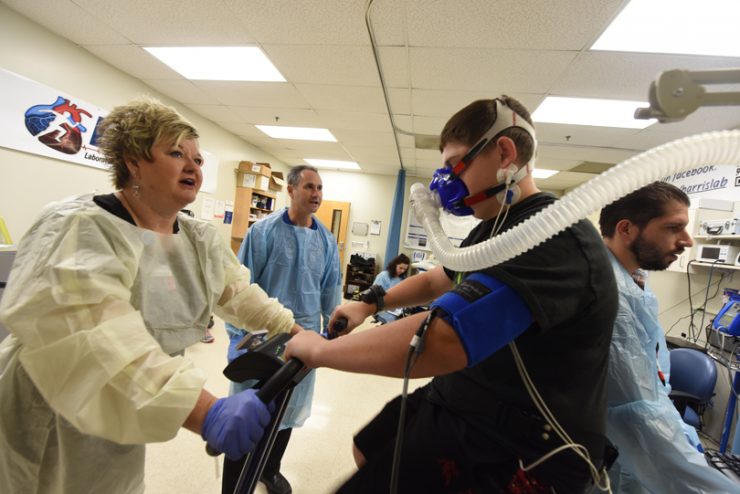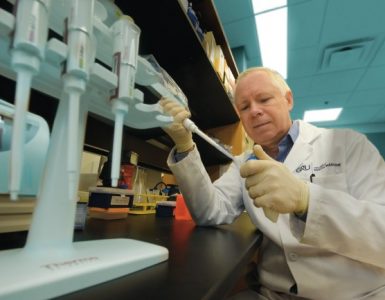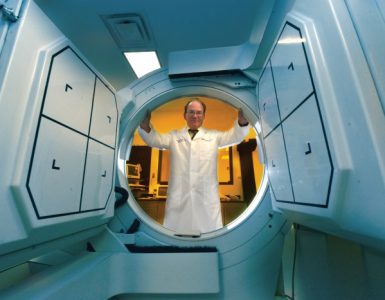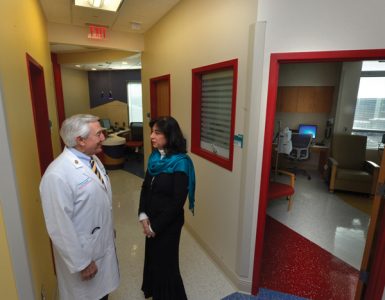Back in the 1950s, children with cystic fibrosis (CF), a genetic disease that attacks the lungs and digestive system, rarely survived beyond elementary school. Now, thanks to advances in treatment and research, the median predicted survival age is around 47 years. But the additional lifespan has added its own complications.
Cystic fibrosis patients exhibit an inability to exercise, which has proven to be detrimental to their overall health and lifespan. But what Dr. Ryan Harris, director of the Laboratory of Integrated Vascular and Exercise Physiology at the Georgia Prevention Institute, is uncovering in his research is that the inability to exercise is not fully a result of impaired lung function.
And if impaired lung function isn’t preventing patients from exercising, Harris wants to know what is. And right now, he’s the only one asking the question.
“No one is looking at it from our perspective,” he says. “If we can understand what’s contributing to their inability to exercise, we can develop lifestyle modifications and maybe nonpharmacological interventions. We’re even working on a pharmacological intervention to improve exercise ability.”
If they can do that, Harris says, they’ll be able to increase the survival rate even more, decrease hospitalizations and improve the quality of life in patients with CF.
So far, Harris’ findings are confined to his own research population, but he recently submitted a grant proposal to expand his research to a multi-center study. Collaborating with another center, he can expand the numbers in a different region and see if the outcomes hold true. If they do, it becomes more accepted to start changing regimens and altering treatment paths for patients worldwide.
Harris works closely with Augusta University’s Cystic Fibrosis Center, one of only two centers in Georgia accredited by the national Cystic Fibrosis Foundation.
“They really provide that link from the clinical service to the investigational paradigm,” Harris says. “They’re a treatment center, but they also provide the bridge to me as a researcher.”
And that bridge puts him face-to-face with the patients he’s working to help.
“Being hands-on with the patients is my passion,” Harris says.
Want more? See our online exclusive Looking Down the Road.










